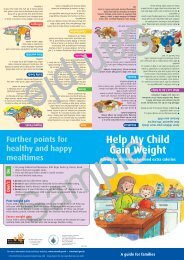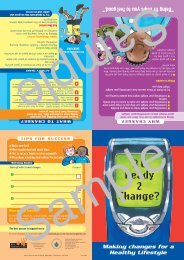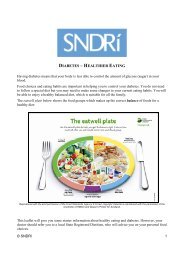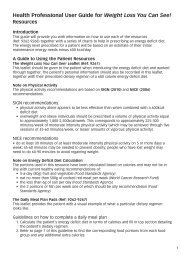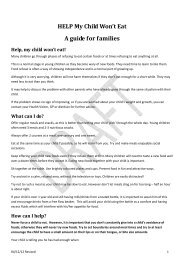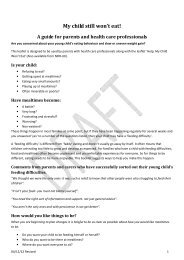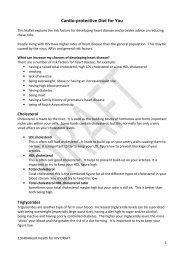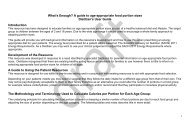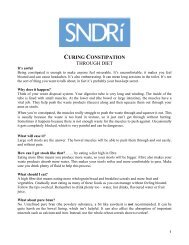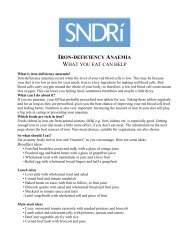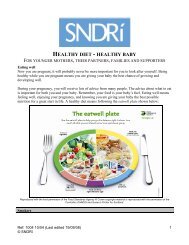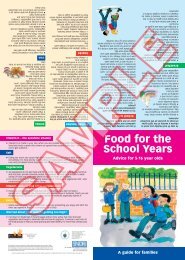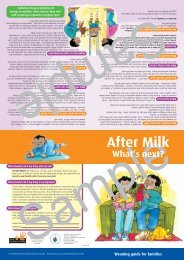9225Introduction to CHOCounting.pdf - NDR-UK
9225Introduction to CHOCounting.pdf - NDR-UK
9225Introduction to CHOCounting.pdf - NDR-UK
Create successful ePaper yourself
Turn your PDF publications into a flip-book with our unique Google optimized e-Paper software.
Other Things <strong>to</strong> Think A b o u t<br />
As you become more confident with your treatment plan, you can think more about your food<br />
c h o i c e s, m e a l t i m e s, activities and lifestyle <strong>to</strong> give you even more flexibility. Keeping a diary of<br />
these points will help you <strong>to</strong> spot trends and have better control.<br />
S n a c k s<br />
You do not need regular snacks on your treatment plan.<br />
• If you want a snack, think about when your last bolus was and how much carbohydrate is in<br />
your snack.<br />
• If your snack contains more than g of carbohydrate or is after hours of<br />
your last bolus, you will need <strong>to</strong> take a bolus of insulin.<br />
The best way <strong>to</strong> check if this works is<br />
<strong>to</strong> regularly check your blood glucose.<br />
You generally won’t need <strong>to</strong> bolus if you take carbohydrate <strong>to</strong> treat a hypo or for extra energy<br />
during activity. Discuss this with your diabetes team.<br />
What about bedtime snacks?<br />
It can be tempting <strong>to</strong> avoid a bolus with your bedtime snack if you are worried about hypos<br />
during the night. H o w e v e r, your blood glucose may be high for several hours and only come<br />
down with your basal insulin. Discuss this with your diabetes team.<br />
R e m e m b e r, you don’t really know what your blood glucose is during the night unless you test it<br />
from time-<strong>to</strong>-time.<br />
Delaying or skipping meals and flexible meal times<br />
It is important <strong>to</strong> try and have three regular meals a day. G e n e ra l l y, your treatment plan means<br />
that you won’t need <strong>to</strong> stick <strong>to</strong> set mealtimes. This is most likely <strong>to</strong> happen on special<br />
o c c a s i o n s, if you are away from home or not at school.<br />
If you delay or even skip a meal you:<br />
• should follow your standard ICR when you do have your meal<br />
• may need <strong>to</strong> have an extra bolus if you want <strong>to</strong> have an extra snack<br />
• still need <strong>to</strong> take your basal insulin at the same time regardless of when you are going<br />
<strong>to</strong> eat.<br />
Food choices<br />
Not all carbohydrate foods are digested at the same ra t e. Some are digested quicker and will<br />
raise your blood glucose level faster than others. This is covered in detail in C a r b o h y d r a t e<br />
Counting, The Next Steps (workbook 2), where you will also consider the timing of your<br />
b o l u s.<br />
00 28



